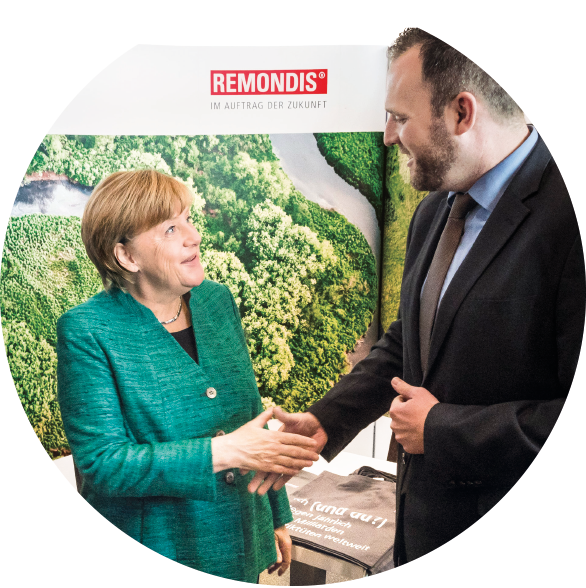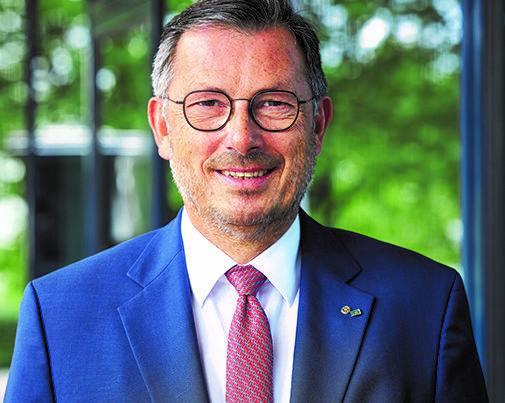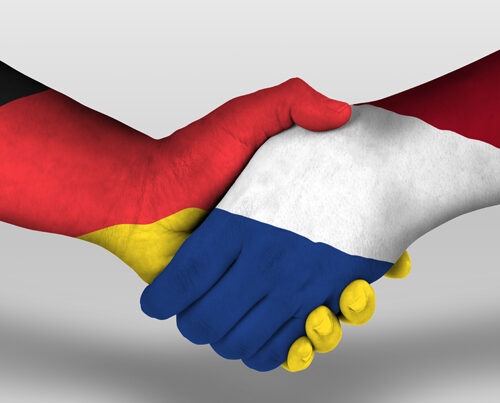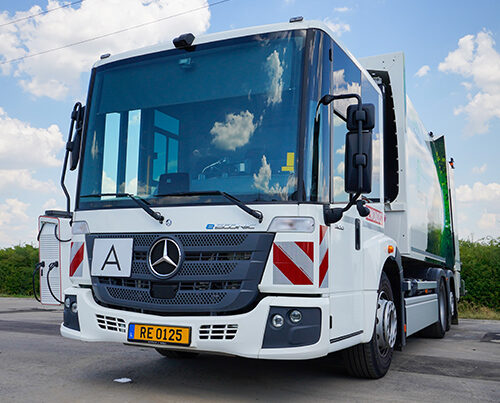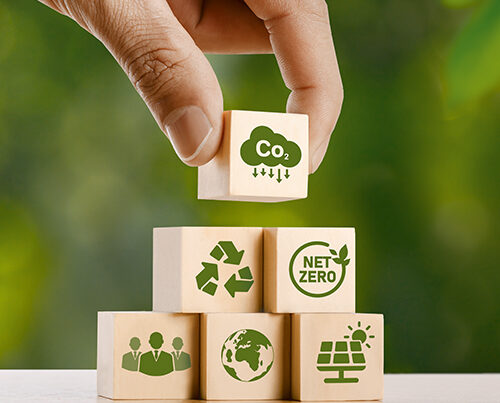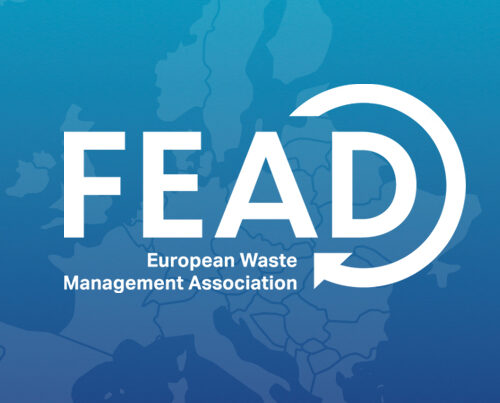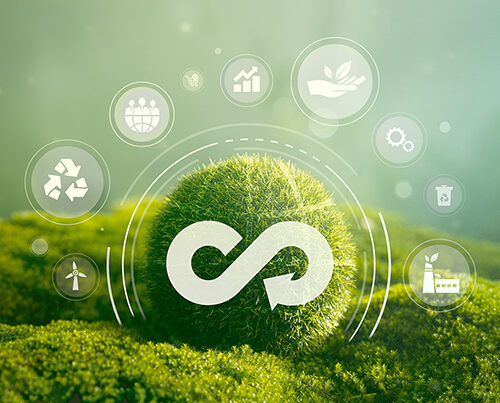What can we expect from the next legislative period?
All of the parties represented in the newly elected Bundestag [lower house of the German parliament] have promised to do more to promote environmental protection and recycling during this next legislative period. What’s more, conserving natural resources and using raw materials more efficiently will be key issues throughout this new parliamentary term. Having said that, however, each party has very different ideas about how this should be achieved. Conflicts are already emerging, especially in the area of producer responsibility. We asked Herwart Wilms, REMONDIS managing director and Vice President of the BDE [Federal Association of the German Waste Management Industry], what changes the recycling sector would like to see over the next four to five years.
Interview
A mere 7 percent of the German electorate felt that the environment and climate change were important topics for the last election. Do you find this alarming?
Herwart Wilms: I’m not so worried about this figure because it comes from a survey held during the general election. I get the impression that society believes this subject has been “done and dusted”. Other studies, such as the one recently published by the Federal Environment Agency (UBA), make it very clear that people genuinely believe environmental issues to be extremely important. Indeed, the population reacts strongly if attempts are made to violate climate or recycling targets. And they don’t only react when others break the law, they also feel better when they themselves do something to protect the environment. Just one example here is that 75 percent of all Germans say that they separate their waste to help prevent climate change. Our industry agrees with them wholeheartedly. This is the easiest and the best way that people can help.
On balance, were you disappointed or impressed by the last four years?
Herwart Wilms: If those are the only two choices then I can’t say I was impressed. The truth is somewhere between the two. Many things were achieved during the last legislative period. This includes the new packaging law – although we had hoped for more here. Then there was the new commercial waste ordinance – here, too, we had hoped for a bit more substance. However, it is a good start and we hope that the enforcement agencies will be able to ensure that the Parliament’s targets are met. At the end of the day, this will determine whether our industry has the security it needs to invest or not. There is also a feeling of disappointment though looking at the many subjects that were left by the wayside. Parliament did not, for example, pass an ordinance regulating soil and groundwater protection and recycled aggregate. Nor did the recyclables law win through even though this would have meant far more recyclable mater-ials could have been recovered from households. What I’m really disappointed about is that we – as a society – have not succeeded in ensuring that the very most is made of household waste and that all the materials that could potentially be recycled are recovered. 7.8 million tonnes are still being wasted. Instead far too much time was spent on arguing about the question “Who should be allowed to collect it?”. We have the know-how and we put forward proposals how to exploit this potential. In the end, though, the decision made was not in favour of or – if you prefer – was against this law. What we need are politicians who are prepared to make decisions. All the different subjects were on the table, they were perfectly clear and everyone knew about them. On balance, the results were not so impressive.
What three things would you like the new German government to achieve?
Herwart Wilms: There are a number of things that still need to be changed. Such as the ordinance I just mentioned. What’s more, the fertiliser ordinance needs to be revised. Liquid manure, which has a huge negative impact on the quality of our groundwater, is currently on a par with compost, which is totally harmless. This is simply wrong. It makes a mockery of all those people who separate their waste in their homes. Secondly, we have to actively increase the amount of materials we recycle because we are an industrial nation with very few raw materials of our own.
We have to create a genuine circular economy in which companies think about the recyclability of their new products whilst they are actually designing them. And consumers must be made aware of this. Which is why we are calling for a label that makes it clear to shoppers whether – or to what extent – a product can be recycled. Moreover, if producers are to be made responsible for recycling their products, then there must be a market for the recycled materials, a market accepted by society as a whole, so that a company’s business remains viable. This would also protect us against moves made by governments to close their markets to recycled products, such as China is doing at the moment. The third thing is something we have been calling for for a long time now – that all firms providing the same service should be subject to the same tax. One company carrying out kerbside collections should not be taxed differently to another firm providing exactly the same service. Whilst this is self-evident for us, it is not, unfortunately, always the case for some public sector service providers.
Who would you like to see becoming the next Environment Minister?
Herwart Wilms: It would be a person who knows what the important issues are and who has the courage to push these through their coalition government – well aware, of course, that they won’t be able to keep everyone happy. Whoever becomes the next Environment Minister must have the strength to make the necessary decisions. And the courage!
We have the know-how and we put forward proposals how to exploit this potential. In the end, though, the decision made was not in favour of or – if you prefer – was against this law. What we need are politicians who are prepared to make decisions
What can the industry do to get politicians to prioritise sustainability?
Herwart Wilms: It must make it even clearer just how much the industry contributes towards protecting the environment and curbing global warming. With the global population expected to reach 10 billion and the per capita consumption of natural resources increasing all the time, we are heading towards a society that will not have enough raw materials. Our sector not only has smart solutions that enable raw materials to be reused, it also reduces energy consumption and cuts carbon emissions. Even those materials that we thought would last forever are becoming scarce – construction sand to name just one. We need to offer solutions to these problems. What’s more we need to set sensible and responsible priorities when different goals clash, for example between CO2 emissions, energy efficiency and emissions of nitrous gases.
Given the opportunity, what would be the first political decision you would make?
Herwart Wilms: I would extend product responsibility to include all consumer and industrial goods. Companies should be rewarded for investing time and money to make their products recyclable; those that don’t do this should be in a worse off position. Producer responsibility must apply to everyone not just manufacturers of packaging. This also means supporting and promoting the use of recycled materials. One is not possible without the other if we want to be a sustainable and responsible industrial society. This is especially important for the industrial businesses that wish to manufacture their products here in the future as they will need a reliable supply of raw materials that cannot be mined here in Germany.
A visit from the Chancellor
Christian Monreal, Public Affairs REMONDIS, was delighted to receive a visit from the German Chancellor, Angela Merkel, during a meeting of the ‘Junge Union’ (German Young Conservatives) in Dresden.
“Ms Merkel was very friendly and very interested in talking about recycling. I hope she really does focus on this subject over the next four years,” Christian Monreal commented.
